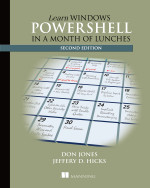I recently gave away two copies of Packt’s new title, Windows Presentation Foundation 4.5 Cookbook. Packt also provided me with an eBook copy to review. I do quite a bit of WPF work at my day job these days, so I was very interested.
WPF 4.5 Cookbook is a great reference guide for mid-to-senior level WPF developers. It is not intended to teach beginners how to get started. It is for those times when experienced developers are facing a task that maybe they don’t do every day and need a quick refresher, or perhaps they’re using a particular technique for the first time. If you have a decent background in any kind of XAML development (Silverlight, WPF, Windows Phone, etc) and you will be working on WPF applications, this book will make a handy desktop companion.
The cookbook pattern is implemented well by the author. Each topic includes an introduction, a step-by-step guide on how to code the solution, an explanation of why to use the technique and how to take it further. Topics covered include layout, controls, styles, data binding, commands in MVVM, graphics/animation, and threading. While some new C# 5.0 and WPF 4.5 topics are covered, much of the book can be used as a guide for previous versions of WPF as well.
I think this book would be useful to almost any WPF developer with at least some experience and heartily recommend it.

